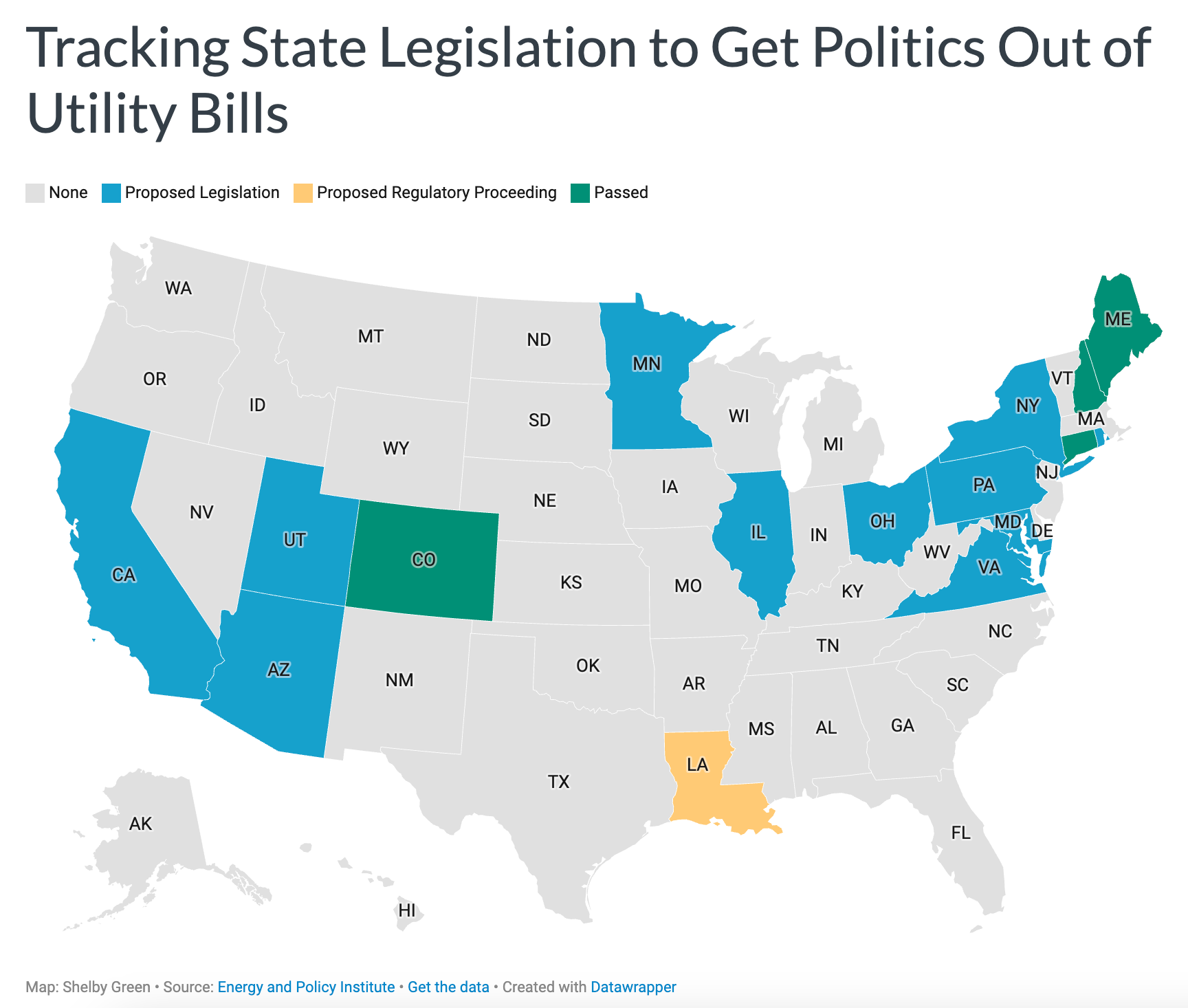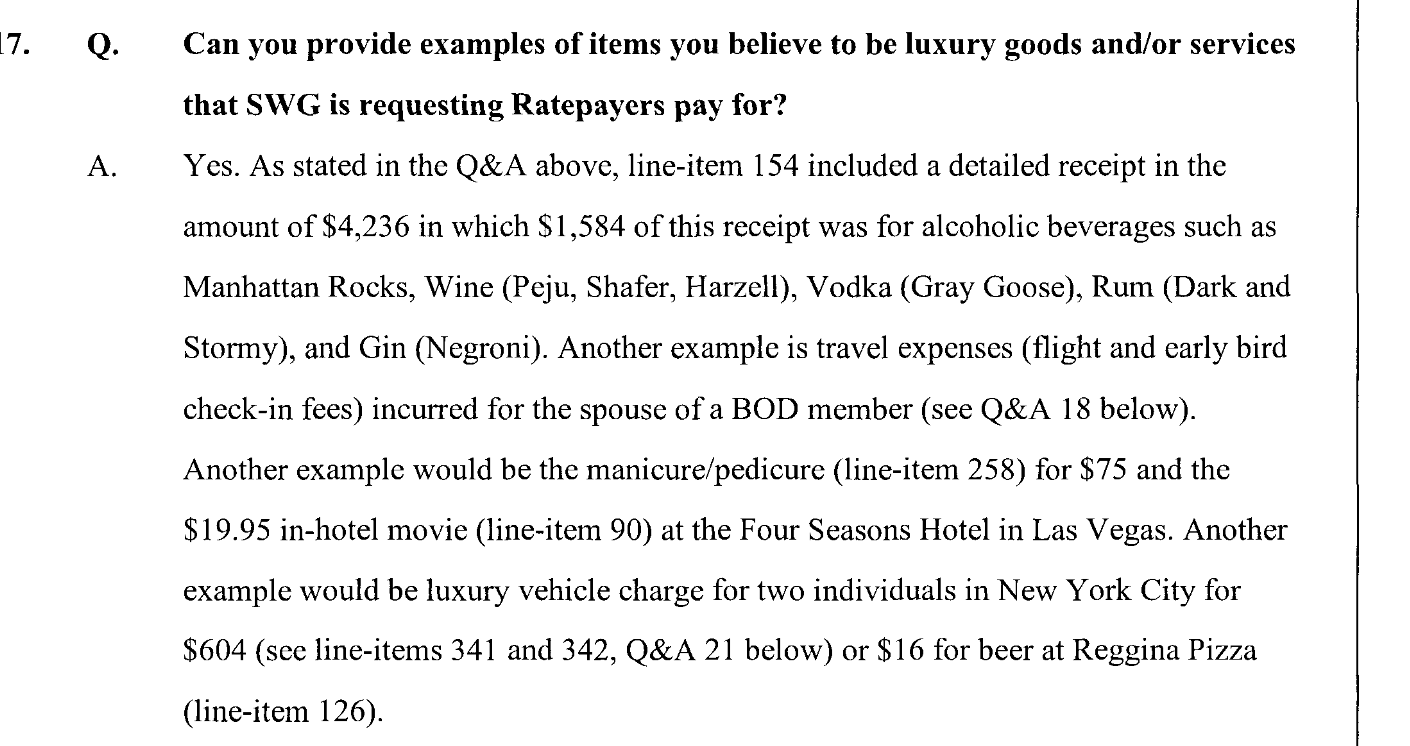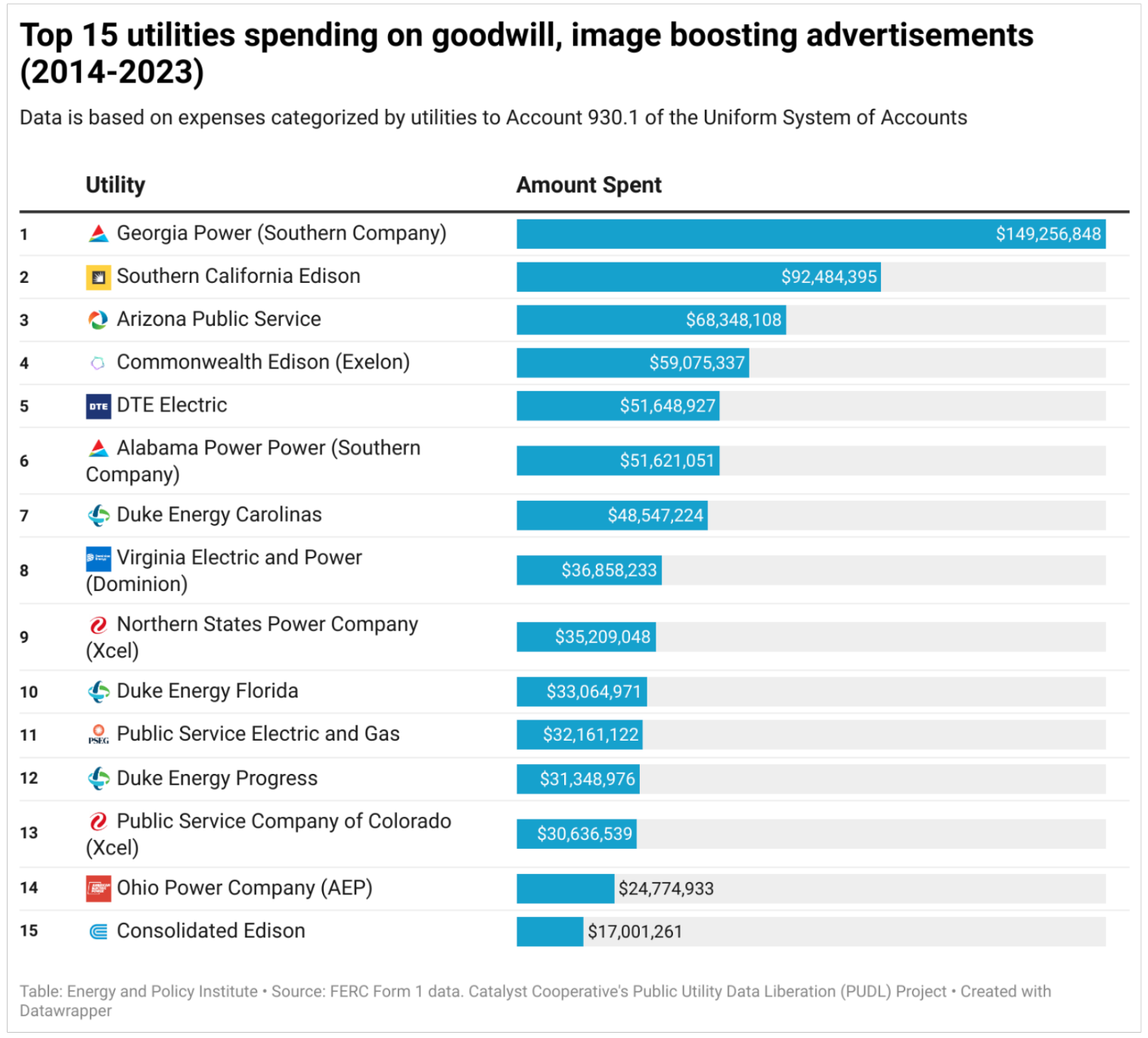Massages and country clubs: Your electric bill may be funding lavish perks
Utility customers sometimes foot the bill for lobbying, advertising and luxurious living, new report shows

Published by South Carolina Daily Gazette, Louisiana Illuminator, WWNO, Fast Company
Power companies across the country have been quietly trying to charge their customers for millions of dollars worth of luxury expenses — including bi-weekly massages, access to exclusive country clubs and private jet travel — according to a new report from the Energy and Policy Institute (EPI), a utility watchdog.
The regulated monopolies are only supposed to charge for expenses that directly benefit customers, such as upgrades to the electric grid or the salaries of employees. But a dysfunctional regulatory system allows gas and electric companies to charge not just luxury perks, but also nonessential lobbying and advertising costs into customers’ electric bills, the report found.
In 2019, Dominion South Carolina attempted to pass almost $1 million in exclusive golf and country club memberships for their employees onto customers.
Utilities also use ratepayer money to finance self-serving marketing campaigns. Over the past decade, utilities spent more than $1.1 billion on goodwill and institutional advertising under Federal Energy Regulatory Commission (FERC) accounting categories, EPI found.
“Our analysis, which focused on many of the nation's largest utilities, found that it was quite routine for utilities to attempt to charge customers for these kinds of inappropriate expenses,” said Karlee Weinmann, research and communications manager at EPI and one of the report’s authors. “It was common that they succeeded as well.”
In some instances, gas utilities have even tried charging customers for their lobbying against electrification, which would reduce greenhouse gas emissions from buses, homes and ports, the report found. Since 2019, four states — Colorado, Connecticut, Maine and New Hampshire— enacted legislation prohibiting utilities from passing political expenses onto customers. Eleven other states have considered such legislation.
“The strict federal lobbying regulations and disclosure laws that investor-owned electric companies abide by help to ensure that lobbying expenses are paid by shareholders, not customers,” responded Brian Reil, managing director of external communications for the Edison Electric Institute, a utility trade association. “Furthermore, investor-owned electric companies are some of the most heavily regulated entities in the country, and their investment plans and expenses are carefully reviewed during open and transparent rate review proceedings.”
Customers foot the bill for corporate indulgence
How do customers’ electric bills end up paying for power companies’ corporate perks? It comes down to who is keeping an eye on the utilities.
In exchange for protection from competition, power and gas companies are supposed to have their spending regularly reviewed by federal and state government regulators. And when they ask regulators to let them raise the rates they charge for gas or electricity, consumer advocates and nonprofit organizations can often take part in the proceedings, giving them a chance to check the company’s math.
But in some states, power company campaign contributions help elect the regulators. Other states, such as Georgia, lack independent consumer advocates. And everywhere, utilities can bury their questionable expenses within reams of data.
“I think our public regulators are simply outgunned by utilities,” said John Farrell, co-director of the Institute for Local Self-Reliance and an expert on utility influence. “Most utilities are so big, thanks to the repeal of a New Deal-era law in 2005, they've been allowed to merge and to create these giant multi-state corporations.”

According to the report, what sort of luxurious perks were buried within the regulatory data? In 2018, Southwest Gas in Nevada tried to charge customers for weekly and bi-weekly massages from a local massage school.
Massachusetts utility National Grid charged customers thousands for business-class travel to France and London. Michigan's DTE Energy, Duke Energy Indiana and Georgia Power have all tried to charge customers for private jet travel. And Brooklyn Gas tried to charge customers more than $1,170 for what appeared to be an employee's wedding.
In many cases, these kinds of charges were not identified by regulators but were instead caught and disputed by consumer advocates or nonprofit organizations participating in the regulatory process.
“It's definitely difficult to detect,” said Ari Peskoe, director of the Electricity Law Initiative at the Harvard Law School. “And the burden is on the consumer advocates, ratepayers and the utility commission to go through reams of data and try to pick out expenses that are miscategorized.”

Massages just the tip of the iceberg
The lavish corporate perks are just the tip of the iceberg, the report reveals. The same regulatory systems that allow utilities to charge customers for luxury travel and spa treatments also enable them to funnel ratepayer money into lobbying and self-serving advertising campaigns.

A three-year-long investigation by the California Public Advocates Office revealed that Southern California Gas had charged customers for lobbying to thwart the electrification of Los Angeles’ bus fleets, homes and port. These efforts included creating and funding a front group that opposed restrictions on gas hookups in new construction and orchestrating fake grassroots protests.
These campaigns often cross into “greenwashing,” EPI found. Washington Gas portrayed methane as “safe” in a baseball sponsorship campaign, despite its well-documented environmental and safety risks.
In another case, Chesapeake Utilities ran ads promoting methane gas as “cuddly” and “cozy” while seeking to recover these promotional costs from ratepayers. Regulators in Maryland deemed such advertisements “not in the public interest.”
Floodlight is a nonprofit newsroom that investigates the powerful interests stalling climate action.


